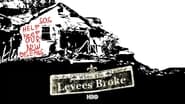Mike B
If you want a thorough understanding of what happened in New Orleans during Hurricane Katrina in 2005 then this is the documentary for you. It's over 4 hours in length and it is brings out the devastation of this calamitous storm. It also demonstrates the ineptitude of government at all levels – local, state and federal (well it was the George Bush years). What did FEMA do? At the company where I use to work they had a Disaster Recovery plan in place – it was tested every year. What type of disaster plan did the city of New Orleans have? What was their plan for when a class 5 hurricane hit? Was it to put people in a stadium or drop them on an elevated highway with no food or water? They told people to leave, but there was no mass public transportation in place to facilitate this. Had these leaders never heard the expression: "hope for the best, but prepare for the worst"?As many people in the documentary stated the devastation was simply "indescribable". The people affected simply became disenfranchised –some real estate companies were trying to buy their property at rock-bottom prices after Katrina. There is a lot of newsreel footage but the real impact is felt with the interviews of the residents who experienced Katrina. The first 2 acts of this documentary highlight Katrina's beginnings and the actual storm with people inhabiting the stadium. The last 2 acts are the residual affects - what becomes of New Orleans and its' people? It is more obvious at this stage that the Federal Government hardly cared and was forced to act probably just as much by news footage as by severe prompting from the city and state governments.This is powerful documentary that works on many levels: the simple overwhelming forces of nature, the live reaction of those affected, and how all levels of government were completely caught off guard by this.
gftbiloxi
As a resident of south Mississippi, I am incredibly frustrated by media that reports "Hurricane Katrina Struck New Orleans." In truth, Hurricane Katrina struck the Mississippi gulf coast and south Louisiana, visiting upon those areas a thirty foot wall of water. New Orleans, on the edge of the weaker northwest quadrant of the storm, was merely brushed.It is a point which WHEN THE LEVEES BROKE brings out early: New Orleans received at best a glancing blow and it should have survived. The great disaster which befell the city was not so much natural as man-made. And throughout the documentary's four hour run time, director Spike Lee not only presents a kaleidescope of interviews with survivors, he repeatedly returns to the inevitable question: how did it happen? Much of the answer to that question depends on who you ask. New Orleans has a history of blowing levees, and early in the film several people state flatly that the levees were deliberately blown in an effort to protect the city's wealthier districts at the expense of poorer areas. But although director Lee gives the idea play, it soon becomes clear that no such effort was required: it was in fact a mixture of bad design; neglect; an unwillingness by city, state, and federal officials to spend the money; and, most simply, indifference toward the people of New Orleans and indeed Louisiana in general.WHEN THE LEVEES BROKE is truly devastating in its portrait of a great American city's collapse. Interviews with survivors, archival footage, and news reports paint a damning portrait of failure at almost every possible level. Most damning is the picture of federal inaction. While people drowned in their attics, President Bush was on vacation. While people collapsed from heat prostration and dehydration Condoleeza Rice bought shoes at an upscale store. The minutes became hours, the hours became days, and the cavalry simply did not arrive.Spike Lee is a somewhat problematic director, an artist who has the very distinct tendency to interject race issues into scenarios whether such is warranted or not. In this particular instance, however, I believe Lee is on target when the attributes federal inaction in large part to the fact that New Orleans is predominately poor and black. Had he gone further to note the obvious fact that the city is also of the deep South--a region that has typically been ignored by Washington--he would have struck a bull's eye; it is worth pointing out that south Mississippi, which is predominately white, experienced the same federal foot dragging and ridiculous mismanagement.When all is said and done, WHEN THE LEVEES broke is a stunning but flawed portrait of a horrific disaster that befell a great American city--a city which, as of this date, has yet to begin a significant recovery and which will very likely never again be the New Orleans of legend and song. It's great strength is that it allows the victims to speak for themselves; it's great failure is a tendency to posit race plain and simple as the cause of federal indifference. It was a mighty factor, to be sure, but nothing is ever quite as simple as all that.The DVD release includes three disks. The film itself offers a commentary by Lee; the third disk consists of bonus material that further elaborates what is indeed an American tragedy. In spite of occasional flaws, I recommend it very strongly.GFT, Amazon Reviewer
johngineer
#1 - The residents of New Orleans were and are still being repeatedly f***ed at every level of government in the aftermath of Hurricane Katrina.#2 - Spike Lee is one of the most, if not THE most original American filmmaker of the last 25 years. His command of visual language is stunning.By drawing from a large sampling of people from across the city and at numerous levels of government, Spike keeps his picture balanced. This evenhandedness actually serves to focus the message even more, as disparate people reinforce each others arguments, and forge a cohesive tale of what happened, how it happened, what went wrong, and who is to blame.Quite possibly the best documentary (period.) in 20 years.
Framescourer
A year's protracted, drip-fed pageant of disaster and failure condensed into four hours. Lee has the good sense never to use voice-over but to let the characters speak for themselves. There's also very little ingenuous editing: footage of Bush' risible praise of his FEMA director or Kanye West's wandering off-script are the only points repeated for impact. Or perhaps for credibility.If there is a sense of narration, the principal speaker is the truly exceptional Mrs. Phyllis Montana LaBlanc. No more than a resident talking head, she's lucid, passionate, modest and good humoured. Were that the indicted federal government were that straight-talking and entertaining.The impression that one gets from the documentary is twofold. Firstly that the American federal government under George Bush is a breathtakingly self-interested, incompetent joke. Secondly that the resilient people of New Orleans have been dispossessed, not of their houses and goods but of their dignity. The strength of the documentary is that it restores some of that by focusing on the honesty of the participants rather than attempting to make a material case for them. 7/10




